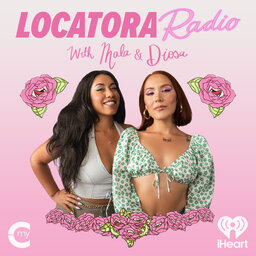Capítulo 160: No Sabo Kids
After Diosa went VIRAL for discussing the history of language violence, we noticed many people questioning the validity of that history. In this episode, we dive into the history of language violence in the American Southwest, Mexican-only schools, and the modern-day pochos, aka No Sabo Kids.
Listeners from around the U.S., share their experience with the Spanish language. From reformed no-sabo kids to a transracial adoptee, listeners share their experiences with their cultural identity.
Thank you to Gia, Paula Zaremba, Doctora Rene Lemus, Breana Quintero (aka Bre Burrito), Jenna Palacios, Marissa Reyes, and Rebeca Ruiz for contributing to our audio archive.
Articles references in this episode:
In 1 playlist(s)
Locatora Radio [A Radiophonic Novela]
Locatora Radio is a weekly podcast that captures the cultural moments we are living through and push…Social links
Follow podcast
Recent clips

Capítulo 261: From Puerto Rico to the World: Bad Bunny's Half-Time Performance
43:20

Capítulo 260: How Reyna Maldonado Is Taking Up Space At Levi's Stadium
26:16

Capítulo 259: How We Keep Hope Alive
36:04
![Locatora Radio [A Radiophonic Novela]](https://www.omnycontent.com/d/programs/e73c998e-6e60-432f-8610-ae210140c5b1/bb1704d3-e206-4e2c-88a9-af02012fb7c4/image.jpg?t=1749832346&size=thumbnail) Locatora Radio [A Radiophonic Novela]
Locatora Radio [A Radiophonic Novela]